The most interesting about the bees.
Bumblebees, which are subject to the Russian ear Latin name Bombus, are native hymenopteran insects, which are close relatives of honey bees.
About three hundred species of bees live in North Africa, North America and Northern Eurasia. They also occur in mountains and some other regions of the globe.
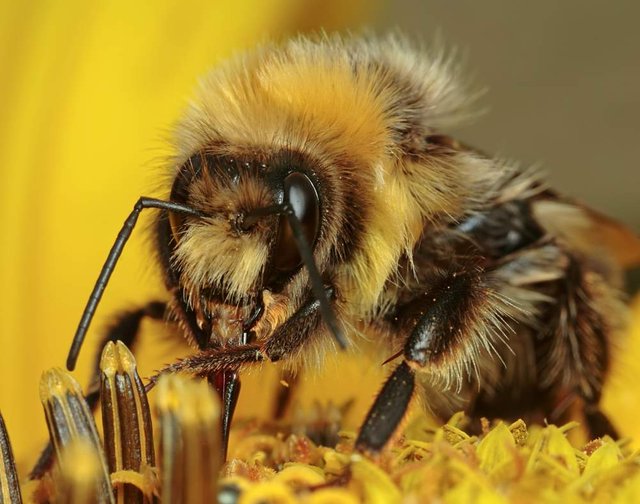
Bumblebee — the most resistant to the cold weather insect.
As seen above, the bees prefer the Northern regions, which is not surprising in view of the fact that they are among the most cold resistant insects. They can heat his body up to a temperature of 40 degrees Celsius, which is required for full activity of the insect. To do this, the bumblebees are used, frequent and rapid contraction of the muscles of the chest.
Thanks to its developed thermoregulation they can fly to collect nectar in the early morning when the air is still too cold and other insects are still sitting in their shelters. In the end, the first nectar it goes to these hardy workers.
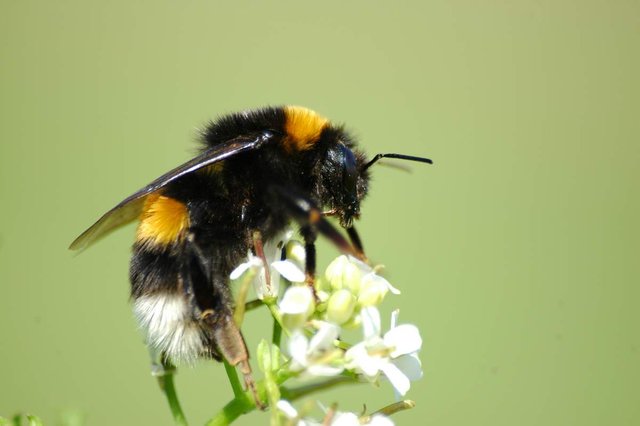
Thanks to the gun on the body of bumblebee monitors the temperature of your body.
Another factor that contributes to the maintenance of normal body temperature is well known to all who saw bumblebee, down through the body. Thanks to him, the heat loss is reduced by half.
Interestingly, during the flight, about 90% of the energy is converted into heat and therefore of a flying bumblebee has a constant temperature.
At an ambient temperature of 5 degrees bumblebee holding temperature of 36 degrees, and at 35 – 45 degrees. For the same reason bumblebees can't fly at too high temperatures, they overheat.
However, despite all the "Nordic" nature of the bumblebee, and it has a cooling mechanism.
For this flight, the bumblebee produces a drop of fluid from his mouth, evaporating which cools the head of the insect.
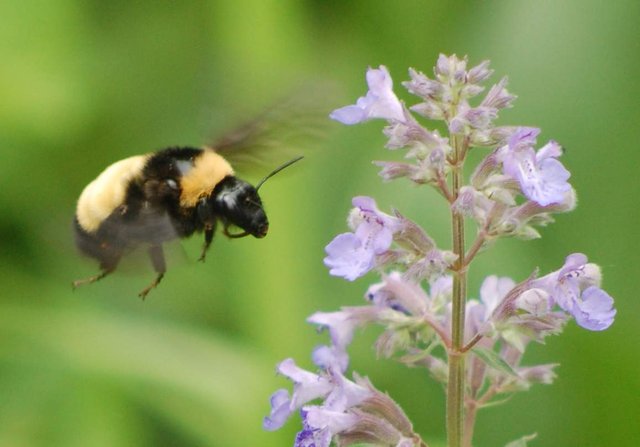
When the bee sits motionless, high body temperature would be capable of.
Flying bumblebee can develop a speed of about 18 kilometers per hour. Live, these insects are not alone, as it is accepted to think, and colonies. Each of them consists of 50-200 individuals. Is a colony of Bumble-bees of three types: males, worker bees (immature females) and females.
The construction of the nest begins with the female uterus in the spring, alone.
An interesting difference between bees from other public bee is that the larvae feed by and developed in the same cell together. If conditions are normal, then the female lays 200 to 400 eggs which gives worker bees, then moves on to the eggs from which will grow the males and females.
Many years ago, it was seen that in bumblebee nests shortly before dawn there is a kind of "trumpeter". For a long time it was believed that his buzz he raises bees to work. But studies have shown that the blower just shivering because the temperature of the soil in the wee hours greatly reduced.
Socket and is cooled to maintain its temperature, bees have struggled to work their pectoral muscles.
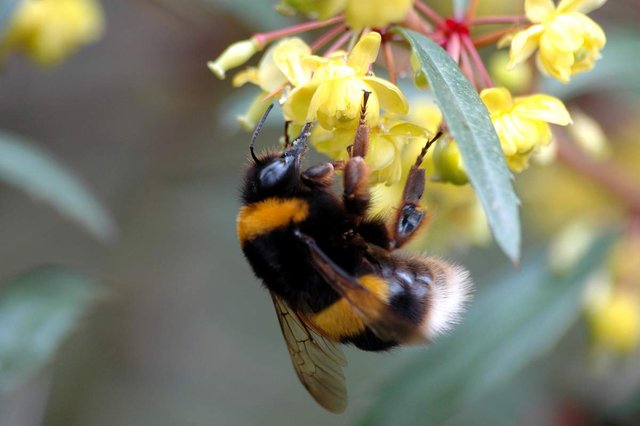
The founder of the colony is one of the few overwintered females fertilized in autumn (female-womb).
In the heat at the entrance to a hornet nest, too, can see the fluttering wings of the insect. This time, however, the bumblebee does not do it to increase the temperature and ventilation of the home.
As with bees, bees have poison, however unlike its distant cousins a thorn in the human skin they do not leave. Accordingly, they can sting not once, but many times in a row.
There are so-called psithyrus, which are parasitic way of life, placing their eggs the other bees in their hives. In addition, they mimic their coloration.
A common misconception, though Bumble-bees fly in, breaking the laws of aerodynamics.
Most likely this misconception arose in the early twentieth century, when the bumblebees tried to apply the calculation of the lift force, which were intended for aircraft. However, a physicist at Cornell University Zheng Jane van it has been proven that no physical laws of flying insects are not violated.
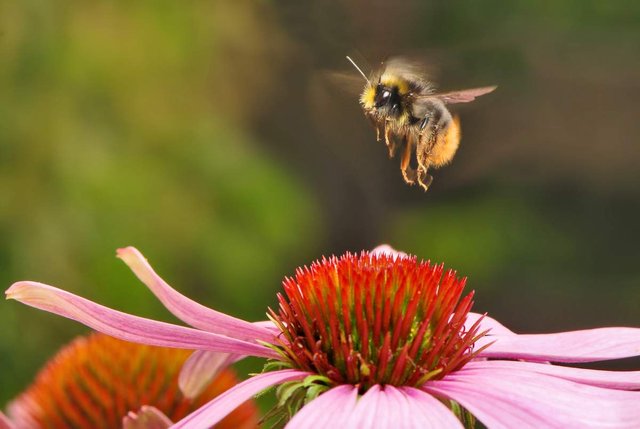
Bumblebee can sting a person.
To come to such conclusions, physics had a very long time to simulate on a supercomputer complex movement of air around quickly flapping bumblebee wings. As noted by the Jane Zheng Wang, the myth of the "wrong" flying bumblebee has arisen from lack of understanding of the aviation engineers of the unsteady viscous gas dynamics.
Due to the fact that bumblebees are not aggressive insects, they can be widely used in garden allotments. Moreover there is even such a little-known branch as smilevideo. This sector is engaged in cultivation of bees for pollination of agricultural crops with the aim of increasing the yield of the latter.
Edit:
This appears to be plagiarism. It is a translation from this article:
http://animalreader.ru/interesnye-fakty-o-shmelyah.html
@steemcleaners
Did you take these images yourself?
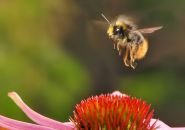
I like...
We have lots of lovely bees here in Poland at the moment.
we childhood bee pollen has been sucked out of kamysha.vkusno
Nice shots. What lens do you use. I use a sigma 50mm en 105mm macro
good shots
Amazing... I like that
i love bees
love seeing them in my garden
Great article, bees are so important for our nature, thanks for sharing!
Excellent article. I like it.